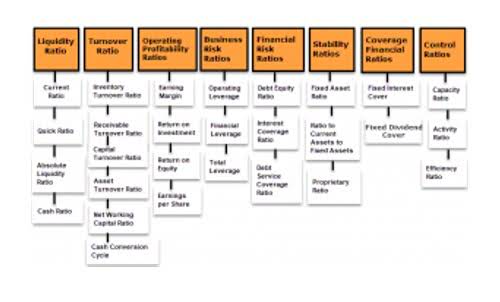Consolidation Accounting Principles and Practices

This article provides a quick overview of the consolidated concept and its implications in accounting. Additionally, we will discuss the benefits of consolidating and any potential drawbacks. Consolidation entries adjust financial data to present an accurate, unified view of the parent company and its subsidiaries. Contact companies you have direct deposits and automatic payments with to update your information and ensure they’re taking money from the right locations.

Table of Contents
Such disclosures provide stakeholders with a clear view of how the company’s financial decisions impact shareholder value. An example of a consolidated income statement can be found in the SEC’s archives. This is where consolidated account meaning the income from a subsidiary is represented when the parent owns only a minority share.
- For a group company, it is referred to as the report which includes parents and its collective business.
- It is essential to understand which category your company is in so that your finance departments report to the appropriate consolidation standards meant for your organization and its branches.
- Intercompany transactions are financial dealings between entities within the same corporate group.
- In this section, let us study how to prepare consolidated statements for such companies.
- New technology like Robotic Process Automation (RPA) will be able to handle more complex manual tasks in financial consolidation.
Eliminating Intercompany Transactions

If you’re happy with one of your existing institutions, you can consolidate everything into an account you already own. But, if you’re https://www.hipertelas.com.br/2025/01/15/what-is-stockholders-equity-and-how-is-it-2/ searching for a brand new bank, consider interest rates, minimum amounts to open accounts, fees and returns on investment, and online access to find a solution that will set you up for success. Private company usually prepare non-consoliate financial statement due to its simple structure. The private company has less requirement in preparing the financial statement while the public company needs to comply with many regulations such as IFRS, SEC, and other local guidelines.

Consolidating does not mean merging entities.
Consolidated financial statements are essential for presenting the financial position and performance of a parent company and its subsidiaries as a single economic entity. Consolidation accounting is a critical aspect of financial reporting for businesses with subsidiaries or investments in other entities. It involves combining the financial statements of these subsidiary companies into a single set of consolidated financial statements. This consolidation process is vital for presenting a comprehensive and accurate financial picture of the entire group of companies to stakeholders, investors, and regulators. Consolidated financial statements are essential tools for presenting the financial position and performance of a parent company and its subsidiaries as a single economic entity.
About the IFRS Foundation

For example, if the parent owns 70% of a subsidiary, the investment recorded on the parent’s books is offset against 70% of the subsidiary’s equity. Any goodwill arising from the acquisition is recognized and tested for impairment annually, as required by IAS 36 and ASC 350. Determining which entities require consolidation is guided by specific accounting standards, primarily the concept of control as outlined in IFRS 10 and U.S.
According to a survey by APQC, most companies spend four to ten days just on financial consolidation. In business, consolidation happens when businesses merge to form a new entity, aiming to increase market share and profitability by combining resources and expertise. Also referred to as amalgamation, consolidation can result in the creation of an entirely new business entity or a subsidiary of a larger firm. Financial statements for parent company and subsidiary companies are prepared on the same date. If a subsidiary cannot submit them on the said date, the company should make adjustments for the effective date.
Consolidation- Definition, Origin, Examples, and How It Relates to Accounting
It exercises control over its subsidiaries, sets the accounting rules and methods for consolidation, and ensures that the financial statements adhere to GAAP and/or IFRS. The parent company’s financial statements serve as the foundation for the consolidated financial statements, and it is responsible for eliminating intercompany transactions to avoid double-counting. Non-controlling interests (NCI) represent the portion of a subsidiary’s equity not owned by the parent company. In consolidation accounting, NCI is included to accurately reflect the ownership structure of the group. This ensures that the interests of minority shareholders are appropriately accounted for in the consolidated financial statements. It is vital to corporate accounting standards as it facilitates the evaluation of an entity’s financial health.
- Consolidation is an important concept in business to improve accounting and other processes.
- Reporting requirements also involve timely and accurate disclosure of financial information.
- Unrealized profit arises when goods sold between group entities remain unsold to external parties at the reporting date.
- These statements provide a comprehensive view of the group’s financial performance and position.
- This activity is reflected in the consolidated statement of changes in shareholders’ equity.
For instance, if a parent company sells goods to a subsidiary at a markup, and the inventory remains unsold, the markup is removed by adjusting the inventory value and corresponding profit. If one company has controlling interest in others, it requires to include all information in their financial statement. Not all subsidiaries are included in the parent consolidated financial statement. Only the subsidiary which is owned more than 50% will be consolidated in the parent company. Moreover, the company will also consolidate if the subsidiary is under their control even ownership is less than 50%.

Corporate Policies
Different processes, cultures, and goals can clash when two companies merge for consolidation purposes. It can lead to disagreements on how best to manage the new entity and what direction should be taken to maximize profits or develop products. This process takes a lot of time because it needs careful attention to detail and constant checking for mistakes or differences that could affect the end product’s accuracy.
Example 1. How is the word “consolidation” used in the field of accounting?
The equity method is typically used when the parent company owns between 20% and 50% of the voting stock. How to Run Payroll for Restaurants Even companies not obligated to create consolidated financial statements may still choose to do so. Also, companies do this to offer a clearer view of it’s overall financial position to investors.
